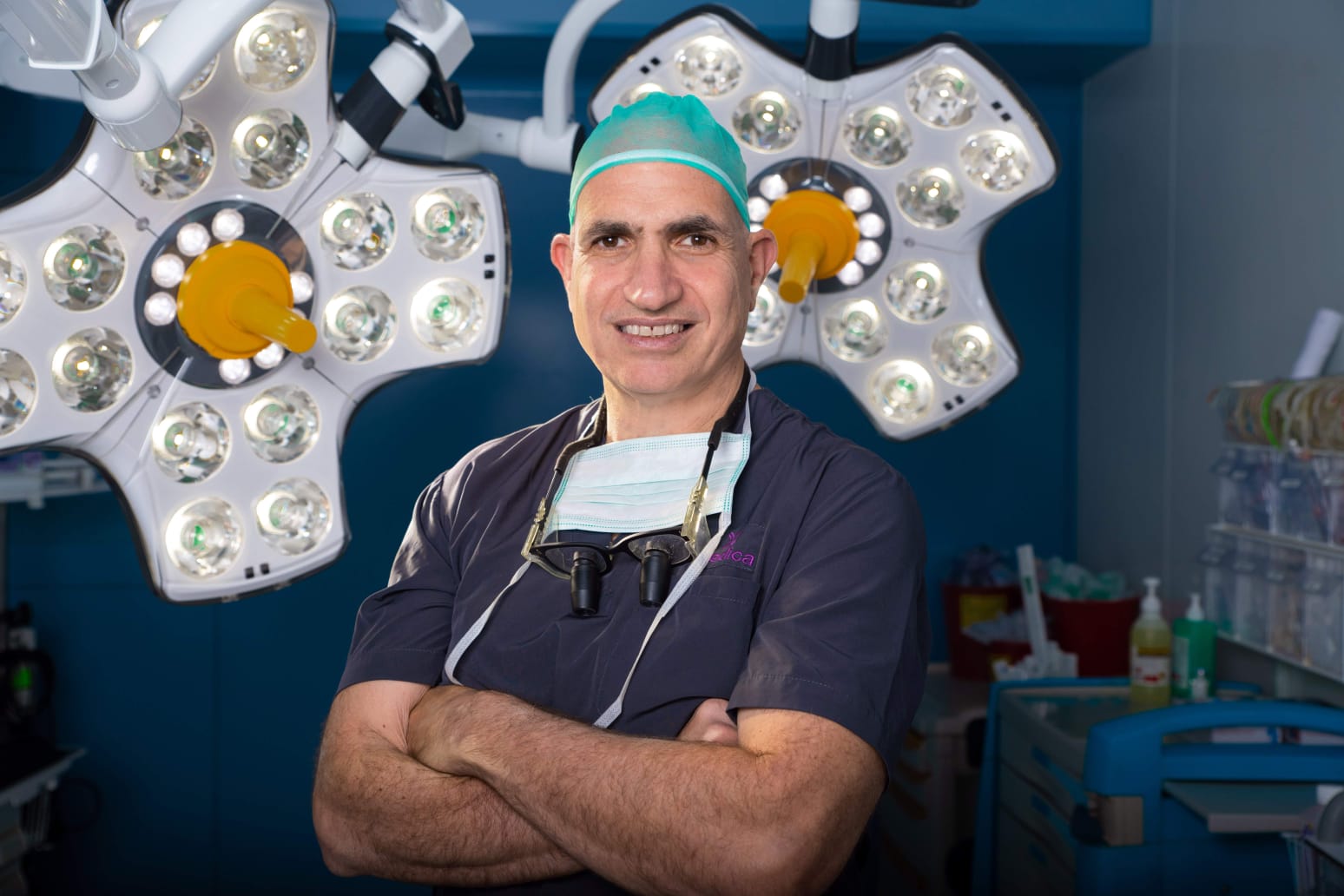When people think about male infertility, sperm count or motility usually comes to mind. But there’s another common issue that often goes unnoticed: ejaculatory dysfunction. It’s a condition where something disrupts the normal process of ejaculation, making it harder (or even impossible) for sperm to reach the egg.
From premature ejaculation to retrograde ejaculation or even no ejaculation at all, these issues can significantly impact fertility. In this article, we’ll break down the different types of ejaculatory dysfunction, what causes them, and how they can be treated, so you can better understand your options and take the next step toward parenthood.
Ejaculatory Dysfunction as a Cause of Infertility
Understanding Ejaculatory Disorders
Ejaculatory disorders encompass a range of conditions that affect the timing, control, and process of ejaculation. These disorders can significantly impact a man’s ability to conceive. The most common types include premature ejaculation, delayed ejaculation, retrograde ejaculation, and anejaculation. Each type presents unique challenges and requires specific interventions.
- Premature Ejaculation : Occurs when ejaculation happens sooner than desired, often within one minute of penetration.
- Delayed Ejaculation : Characterized by prolonged time to reach ejaculation despite adequate sexual stimulation.
- Retrograde Ejaculation : Involves the backward flow of semen into the bladder instead of exiting through the urethra.
- Anejaculation : The complete absence of ejaculation, even with sexual arousal and stimulation.
Impact on Male Fertility
Ejaculatory dysfunction can severely affect male fertility by hindering the delivery of sperm to the female reproductive tract. This can lead to reduced chances of conception, causing emotional and psychological stress for couples trying to conceive. Addressing these disorders is essential for improving fertility outcomes.
- Reduced Sperm Delivery : Impairs the natural fertilization process.
- Emotional Stress : Can lead to anxiety and relationship issues.
- Need for Medical Intervention : Often requires assisted reproductive techniques.
Statistics and Prevalence
Ejaculatory dysfunction is more common than many realize. Studies suggest that premature ejaculation affects up to 30% of men worldwide, while delayed ejaculation and other disorders are less prevalent but still significant. Understanding these statistics helps in recognizing the need for medical attention and support.
- Premature Ejaculation : Affects 20-30% of men globally.
- Delayed Ejaculation : Less common, affecting about 1-4% of men.
- Retrograde Ejaculation and Anejaculation : Rare but impactful on fertility.
Physiology of Normal Ejaculation
Phases of Ejaculation
Ejaculation is a complex process involving two main phases: emission and expulsion. During emission, sperm is moved from the testes to the urethra, while expulsion involves the forceful release of semen. Any disruption in these phases can lead to ejaculatory dysfunction.
- Emission Phase : Involves the movement of sperm and seminal fluid.
- Expulsion Phase : The forceful ejection of semen from the urethra.
Hormonal and Neurological Factors
Hormones and the nervous system play crucial roles in regulating ejaculation. Testosterone is vital for libido and sperm production, while the autonomic nervous system controls the physical process. Imbalances or disruptions in these systems can lead to dysfunction.
- Testosterone : Essential for sexual function and sperm production.
- Autonomic Nervous System : Regulates the physical process of ejaculation.
Types of Ejaculatory Dysfunction
Premature Ejaculation
Premature ejaculation is the most common ejaculatory disorder, characterized by ejaculation that occurs sooner than desired. It can lead to distress and relationship issues, making it essential to seek treatment.
- Commonality : Affects a significant portion of the male population.
- Impact on Relationships : Can cause emotional and psychological stress.
Delayed Ejaculation
Delayed ejaculation involves prolonged time to reach climax, which can be frustrating for both partners. It may be caused by psychological factors, medications, or underlying health conditions.
- Causes : Psychological factors, medications, health conditions.
- Frustration : Can lead to dissatisfaction in sexual relationships.
Retrograde Ejaculation
Retrograde ejaculation occurs when semen enters the bladder instead of exiting through the urethra. It is often a result of surgery, medications, or nerve damage.
- Causes : Surgery, medications, nerve damage.
- Impact on Fertility : Prevents sperm from reaching the female reproductive tract.
Anejaculation
Anejaculation is the complete absence of ejaculation, which can be due to psychological issues, nerve damage, or certain medical conditions. It requires thorough evaluation and treatment.
- Causes : Psychological issues, nerve damage, medical conditions.
- Evaluation : Requires comprehensive medical assessment.
Diagnosis of Ejaculatory Disorders
Medical History and Physical Examination
A thorough medical history and physical examination are the first steps in diagnosing ejaculatory disorders. This helps identify potential causes and guides further testing.
- Medical History : Provides insight into potential causes.
- Physical Examination : Identifies any physical abnormalities.
Semen Analysis
Semen analysis is crucial for assessing sperm count, motility, and morphology. It helps determine the impact of ejaculatory dysfunction on fertility.
- Sperm Count : Measures the number of sperm present.
- Motility and Morphology : Assesses the movement and shape of sperm.
Imaging Studies
Imaging studies, such as ultrasound or MRI, may be used to identify structural abnormalities or blockages that contribute to ejaculatory dysfunction.
- Ultrasound : Detects structural abnormalities.
- MRI : Provides detailed images of the reproductive organs.
Treatment Options for Ejaculatory Dysfunction
Medications
Medications can be effective in treating various types of ejaculatory dysfunction. Selective serotonin reuptake inhibitors (SSRIs) are commonly used for premature ejaculation, while other medications may address underlying health issues.
- SSRIs : Used for treating premature ejaculation.
- Other Medications : Address underlying health conditions.
Behavioral Therapies
Behavioral therapies, such as the stop-start technique or squeeze method, can help manage premature ejaculation. These techniques focus on improving control over ejaculation.
- Stop-Start Technique : Helps delay ejaculation.
- Squeeze Method : Involves applying pressure to prevent premature ejaculation.
Assisted Reproductive Techniques
Assisted reproductive techniques, such as in vitro fertilization (IVF) or intracytoplasmic sperm injection (ICSI), can help couples overcome infertility caused by ejaculatory dysfunction.
- IVF : Involves fertilizing an egg outside the body.
- ICSI : Directly injects sperm into an egg.
Lifestyle Factors Affecting Ejaculatory Function
Diet and Nutrition
A balanced diet rich in vitamins and minerals can support healthy sexual function. Foods high in zinc and antioxidants are particularly beneficial.
- Zinc : Supports testosterone production.
- Antioxidants : Protect sperm from damage.
Exercise and Physical Activity
Regular exercise improves blood flow and reduces stress, both of which are important for maintaining healthy ejaculatory function.
- Improved Blood Flow : Supports sexual health.
- Stress Reduction : Enhances overall well-being.
Stress Management
Chronic stress can negatively impact sexual function. Techniques such as meditation, yoga, and deep breathing can help manage stress levels.
- Meditation : Promotes relaxation.
- Yoga : Enhances physical and mental well-being.
Psychological Impact of Ejaculatory Dysfunction
Relationship Stress
Ejaculatory dysfunction can lead to relationship stress, affecting intimacy and communication between partners. Open communication and seeking professional help can alleviate these issues.
- Intimacy Issues : Can strain relationships.
- Communication : Essential for resolving conflicts.
Anxiety and Depression
The psychological impact of ejaculatory dysfunction can lead to anxiety and depression. Addressing these mental health issues is crucial for overall well-being.
- Mental Health : Affects emotional and physical health.
- Professional Help : Important for managing symptoms.
Seeking Professional Help
Professional counseling or therapy can provide support and guidance for individuals and couples dealing with ejaculatory dysfunction.
- Counseling : Offers emotional support.
- Therapy : Provides strategies for managing dysfunction.
Advances in Treating Ejaculatory Dysfunction-Related Infertility
Sperm Retrieval Techniques
Sperm retrieval techniques, such as testicular sperm extraction (TESE), can help obtain viable sperm for assisted reproductive techniques.
- TESE : Extracts sperm directly from the testes.
- Viable Sperm : Used for assisted reproduction.
In Vitro Fertilization (IVF)
IVF is a widely used technique for overcoming infertility. It involves fertilizing an egg outside the body and implanting it into the uterus.
- Egg Fertilization : Occurs outside the body.
- Implantation : Involves placing the embryo in the uterus.
Intracytoplasmic Sperm Injection (ICSI)
ICSI is a specialized form of IVF where a single sperm is injected directly into an egg. It is particularly useful for severe cases of male infertility.
- Single Sperm Injection : Increases chances of fertilization.
- Useful for Severe Infertility : Addresses specific male infertility issues.
Prevention Strategies for Ejaculatory Disorders
Maintaining Overall Health
Maintaining a healthy lifestyle, including a balanced diet and regular exercise, can prevent many causes of ejaculatory dysfunction.
- Healthy Lifestyle : Supports sexual function.
- Balanced Diet : Provides essential nutrients.
Regular Check-ups
Regular medical check-ups can help detect and address potential health issues before they lead to ejaculatory dysfunction.
- Early Detection : Prevents complications.
- Health Monitoring : Ensures overall well-being.
Avoiding Harmful Substances
Avoiding substances such as tobacco, excessive alcohol, and recreational drugs can reduce the risk of developing ejaculatory disorders.
- Tobacco and Alcohol : Negatively impact sexual health.
- Recreational Drugs : Can lead to dysfunction.
Final Thoughts
Ejaculatory dysfunction is a significant cause of infertility, but with the right diagnosis and treatment, many men can overcome these challenges. Understanding the underlying causes and exploring available treatment options can improve fertility outcomes and enhance quality of life.
FAQs
Can ejaculatory dysfunction cause permanent infertility?
Ejaculatory dysfunction can contribute to infertility, but it does not always lead to permanent infertility. Many cases can be treated successfully with medical intervention, lifestyle changes, or assisted reproductive techniques.
What is the most common type of ejaculatory dysfunction?
Premature ejaculation is the most common type of ejaculatory dysfunction, affecting a significant portion of the male population. It is characterized by ejaculation that occurs sooner than desired, often within one minute of penetration.
How is ejaculatory dysfunction diagnosed and treated?
Ejaculatory dysfunction is diagnosed through a combination of medical history, physical examination, semen analysis, and imaging studies. Treatment options vary depending on the type and cause of dysfunction and may include medications, behavioral therapies, or assisted reproductive techniques.


